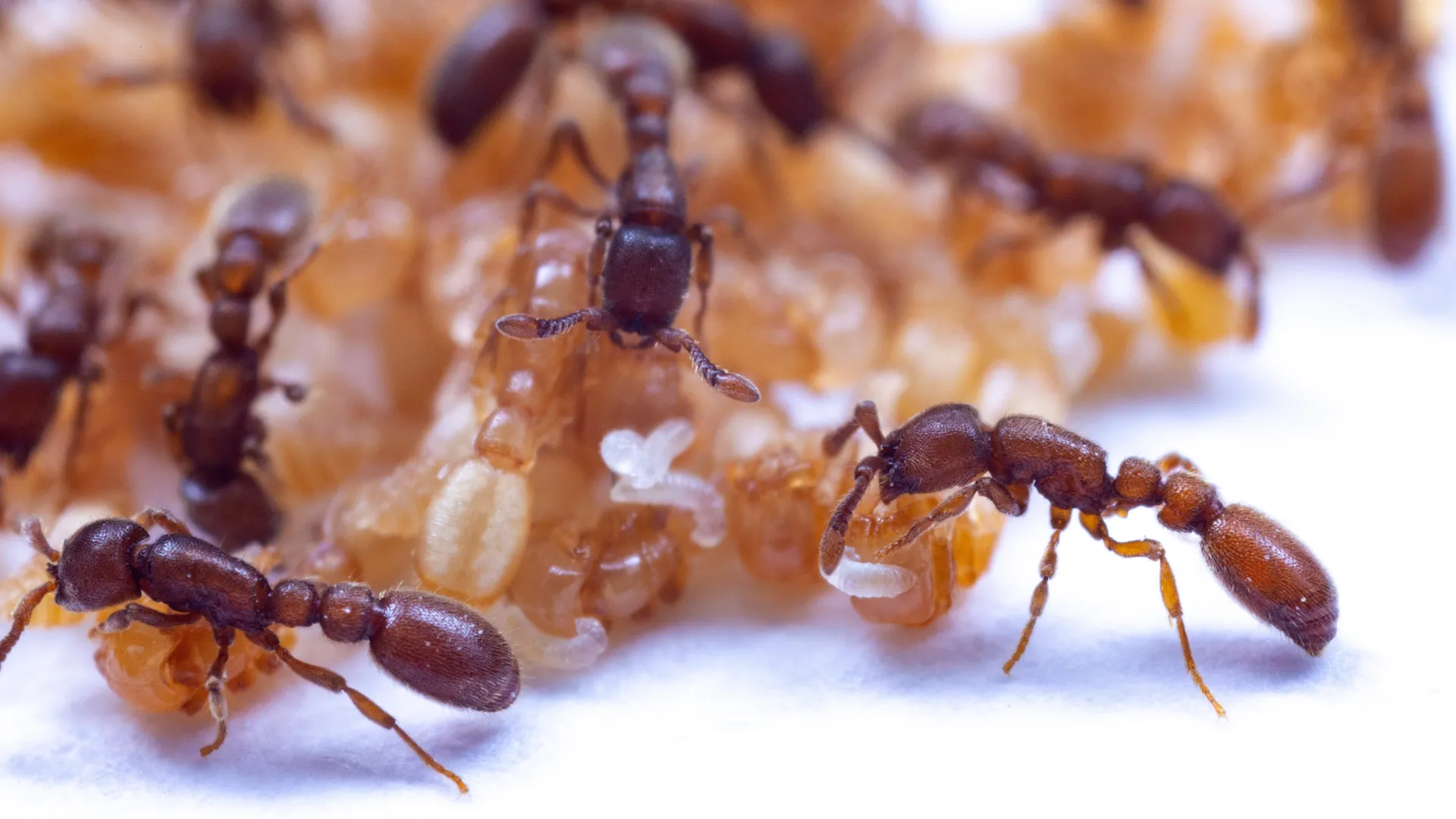Now Reading: Ants Use Hidden Gene to Achieve Super-Smelling Precision
-
01
Ants Use Hidden Gene to Achieve Super-Smelling Precision
Ants Use Hidden Gene to Achieve Super-Smelling Precision

Quick Summary
- Ants employ a unique mechanism to ensure each neuron expresses only one odorant receptor, maintaining their precise sense of smell.
- Scientists at Rockefeller University studying clonal raider ants discovered that neurons silenced neighboring genes using “readthrough” and “antisense” RNA processes.
- This genetic regulation creates a protective shield around the chosen receptor gene, preserving neural identity and functionality.
- Research confirmed similar mechanisms in other social insects like Indian jumping ants and honeybees, suggesting broader application across insect species with complex olfactory systems.
- The study highlights the evolutionary advantage of this regulation system, allowing ants to efficiently expand their sense of smell over time.
Indian Opinion Analysis
This groundbreaking discovery adds vital insights into how insects like ants maintain their highly developed olfactory systems. By revealing a new form of gene regulation that selectively guards odorant receptors while silencing neighbors, the research underscores the sophistication of ant sensory adaptation-critical for colony survival. India stands out within this study as home to one examined species (Indian jumping ant), spotlighting its relevance in understanding global biodiversity trends.
The findings also hold implications beyond entomology by showcasing how tightly grouped genes can function harmoniously in crowded genomic environments without misfiring. As India’s scientific community increasingly advances genetic studies and molecular research, such discoveries may encourage interdisciplinary investigations linking evolutionary biology with genetics. Furthermore, insights from this study could inspire technological innovations for bioinformatics or synthetic biology-a field gaining importance across academic institutions locally and globally.






















